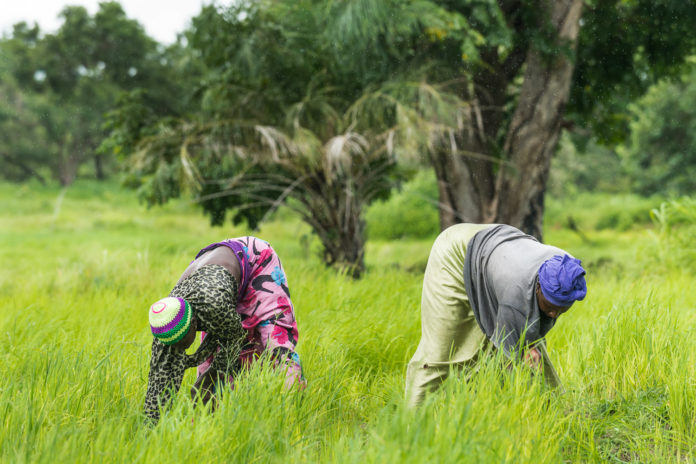
Abdoulai G. Dibba
Assessment done by the Ministry of Agriculture has revealed that the country’s total agricultural production for the 2017 cropping season, will drop from 284, 532 metric tons registered in 2016, to 184, 913 metric tons in 2017 (35%).
However, this medium is reliably informed by farmers in Central River and North Bank Regions that if the threat posed by migratory birds are not addressed with urgency, the production drop indicated in the findings of the Agricultural task force for the assessment of 2017 cropping season, would likely increase.
Farmers in Central River, North Bank and Upper River Regions of the Gambia, have informed this medium in the later part of September that if the rains seized at that period as it did last year, there will certainly be crop failure as the early millet, rice and groundnut are in dire need of water, which was reported in September. However, a ministerial task force was established to assess the impact of the dry spell and the prospect of the 2017 cropping season.
The Ministerial task force has already presented its findings on the impact and the prospect for the 2017 cropping season to the minister and other development partners which forecasted a production drop of 184, 913 metric tons in 2017, from 284, 532 metric tons in 2016. The findings revealed that the reduction is attributed to other reasons key among which is the long dry spell observed in September, through to November and the floods that has affected most rice fields.
Sambou Dampha of Jajary village in Illiassa District, intimated to this medium on Monday 27th November 2017, that the migratory birds are found in their rice fields in large numbers and if nothing is done to control them, they will certainly escalate their food insecurity. Mr. Dampha noted that their harvest on millet and groundnuts is not good this year due to the long dry spell; that they were banking on the harvest of rice to cushion their food insecurity which has now been threatened by the migratory birds.
Fatou Jobe of Kumbija village informed this medium that the migratory birds are currently in their area and destroying their rice fields. She said two of her rice fields will yield zero harvest this year, due to the invasion of the migratory birds. Other farmers in the two regions who spoke to this medium shared the same views but were quick to add that Government and her development partners, should do all it takes, to address the threat of the migratory birds to prevent food insecurity. They concluded that if the threat posed by the migratory birds is not addressed, there will be further crop failure adding to the harm already done by the floods and long dry spell.















